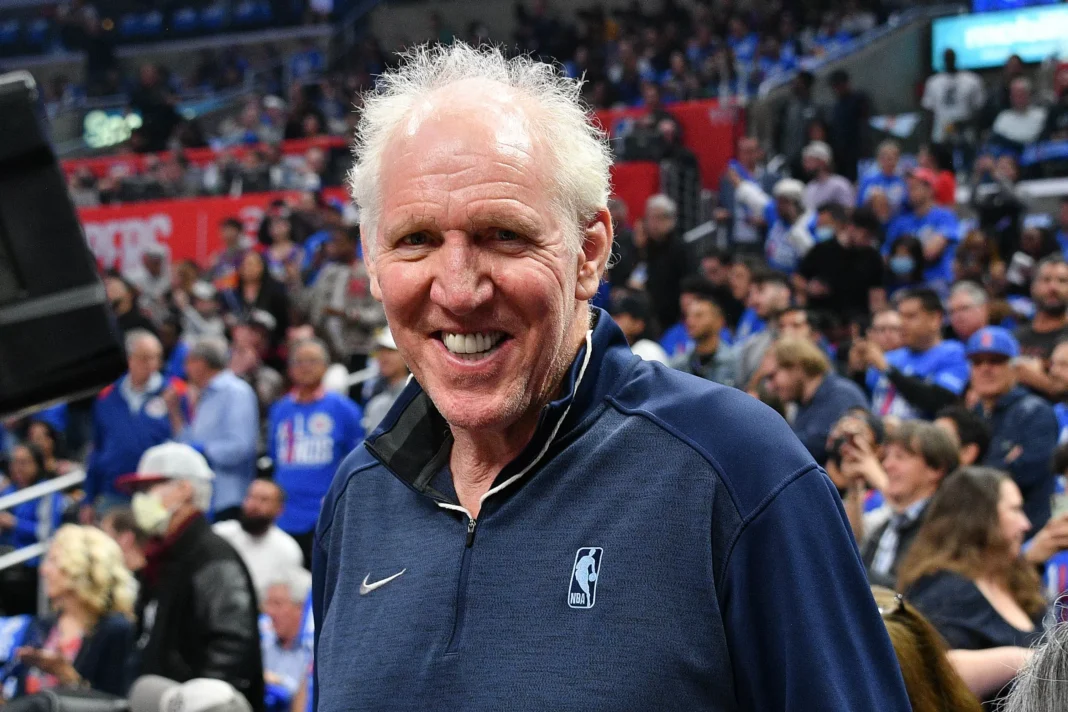Basketball fans all over the world are mourning the loss of a true legend today. Bill Walton, a Hall of Famer who made his mark on both the collegiate and professional level, passed away at the age of 71 after a long battle with cancer. The news was announced by the NBA, and it is clear that the entire basketball community has lost not only a great player but also a wonderful human being.
NBA commissioner Adam Silver paid tribute to Walton, saying, “Bill Walton was truly one of a kind. As a Hall of Fame player, he redefined the center position. His unique all-around skills made him a dominant force on the court. But what I will remember most about him was his zest for life. He was a regular presence at league events – always upbeat, smiling ear to ear and looking to share his wisdom and warmth. I treasured our close friendship, envied his boundless energy and admired the time he took with every person he encountered.”
Born in La Mesa, California, Walton had a legendary career at both UCLA and in the NBA. He was a three-time national player of the year at UCLA, playing under the legendary coach John Wooden. In his three seasons, Walton led the Bruins to an incredible 86-4 record, including back-to-back 30-0 seasons in 1972 and 1973. His dominance on the court established him as one of the greatest college basketball players of all time.
It was no surprise when the Portland Trail Blazers selected Walton with the first overall pick in the 1974 NBA Draft. In just his third season in the league, he led the Blazers to their first and only championship in 1977, where he was named Finals MVP. The following season, Walton was named NBA MVP, averaging 18.9 points, 13.2 rebounds, 5.0 assists, and 2.5 blocks per game. However, his career was cut short by chronic foot injuries.
Despite his injuries, Walton continued to play and make an impact in the NBA. He played for the Portland Trail Blazers, the San Diego and Los Angeles Clippers, and the Boston Celtics. In his debut season with the Celtics, Walton won the Sixth Man of the Year award and helped his team win the NBA championship in 1986. The following two seasons, he battled through injuries but continued to contribute to the team both on and off the court.
The Boston Celtics paid tribute to Walton, saying, “Bill Walton was one of the most consequential players of his era. He could do it all, possessing great timing, complete vision of the floor, excellent fundamentals, and was one of the greatest passing big men in league history. As a Celtic, Bill overcame years of debilitating injuries, regained his zest for the game, and helped guide the 1986 Boston Celtics championship with both his play and his spirit.”
Overall, Walton played 468 games over ten NBA seasons, averaging 13.3 points, 10.5 rebounds, 3.4 assists, and 2.2 blocks per game. He was a two-time NBA MVP runner-up, made two All-Star appearances, and was selected for the NBA’s 50th anniversary and 75th anniversary teams. In 1993, he was inducted into the Naismith Basketball Hall of Fame.
After his retirement from playing, Walton became a beloved broadcaster, winning an Emmy for his work. He was named one of the top 50 sports broadcasters of all time by the American Sportscasters Association. His love for music and the Grateful Dead often made appearances on air, as he was a huge fan of the band. His love for the NBA and the Pac-12 Conference also shone through in his broadcasting career.
Walton’s impact extended beyond basketball. He also authored a memoir, “Back from the Dead,” which detailed his struggles with a debilitating back injury in 2008 and his journey to recovery. He was a source of inspiration for many, showing that with determination and perseverance, one can overcome even the toughest challenges.
The basketball world has lost a true legend, and the outpouring of love and tributes from players, coaches, and fans all over the world is a testament to the impact that Bill Walton had both on and off the court. UCLA head coach Mick Cronin summed up his contribution to the game, saying, “It’s very hard to put into words what he has meant


